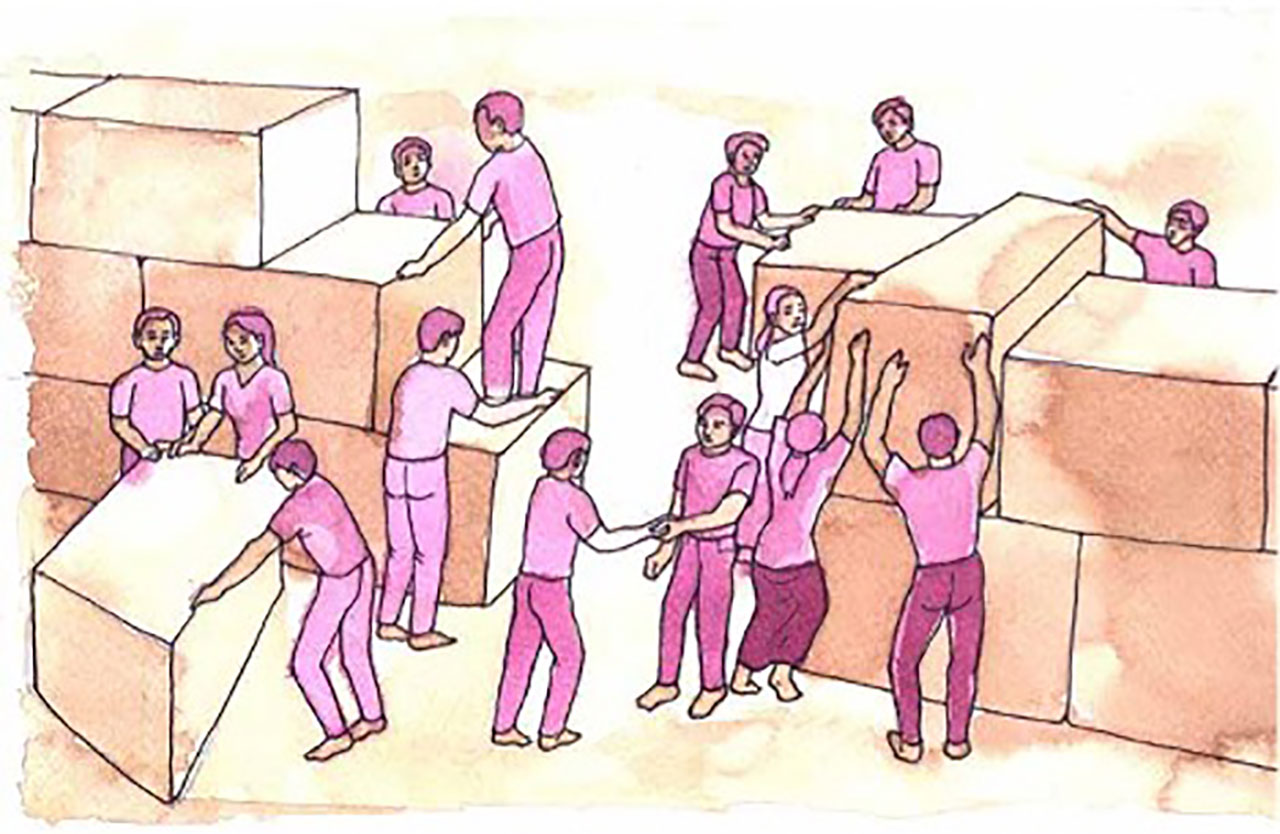PREVIEW
List three challenges that you think minority groups may face.
In general, any person could be targeted by mistreatment. However, members of minority groups may be particularly targeted by mistreatment or be affected differently compared to members of majority groups.
A majority group can mistreat a minority group and its members. For example, persons without disabilities may mistreat persons with disabilities. A minority group can mistreat another minority group. For example, one ethnic minority group can mistreat another ethnic minority group. It is also possible for members of one category of minority group to mistreat members of that minority group who also have an additional minority identity. For example, members of a religious minority group can mistreat other members of that religious minority group who are members of the LGBT community.
Examples of mistreatment include:
- Bribery: Using rewards to pressure a person or a group to do something they do not want to do.
- Coercion: Using force and violence to pressure a person or a group to do something they do not want to do.
- Intimidation and Fear: Using the threat of coercion to pressure a person or a group to do something they do not want to do.
- Norms: Rules or expectations in a particular place and at a particular time. Norms are not written down, unlike laws. Norms are typically shaped by and give privilege to majority groups. Majority groups base norms on their identities, experiences and interests, which are assumed to be applicable to everyone else. This causes members of minority groups to be affected by norms shaped by others. At the same time, members of majority groups may think that their identities, experiences and interests are universal and they may therefore not recognise differences between themselves and minority groups. Norms are often reflected in and reinforced by systems and structures. If members of minority groups do not follow norms, they may face punishment. Some members of minority groups may therefore try to hide or change their identity by following norms. Others may decide to create and follow their own norms.
- Stereotype: A commonly held but too simple idea about all members of a group. To stereotype someone means to judge them based on their group belonging.
- Prejudice: A negative attitude towards a person based on their identity or group belonging. Because many people think members of that group have a bad character, they can easily blame them for problems in the community or society.
- Discrimination: Unfair treatment against individuals or groups of people based on their belonging to a specific group. The unfair treatment causes this group to lack access to freedoms, rights, and opportunities that other people can access. Direct discrimination is when an action, rule or law is intentionally designed to discriminate against an individual or a group of people. Indirect discrimination means that an action, rule or law seems to be neutral, but nonetheless has discriminatory effects.
- Social Exclusion: When people feel disempowered and unable to take part in the political, economic, social and cultural life of their communities and country, they are socially excluded. This means that they lack a sense of belonging with others and live restricted, isolated lives.
- Intolerance: An attitude based on the belief that one’s own group is better than other groups and that the beliefs and practices of other groups are ‘wrong’. Intolerant attitudes shape intolerant actions. These actions often become more gradually harmful to the individuals and groups targeted by intolerance.
- Violent Extremism: A form of intolerance in which a person is convinced that their own group is better than other groups and that violence should be used to promote and expand their group or to suppress and harm other groups. This violence is often organised and based on religious, national, ethnic or political identity.
- Propaganda and Incitement: Propaganda is misleading information that encourages people to adopt a particular opinion or support a particular cause. Incitement means to ‘stir up emotions’ in other people to the point that they commit, or are prepared to commit, unlawful actions. Propaganda and incitement can cause and strengthen discrimination, intolerance and violence against minority groups.
- Forced Assimilation: This occurs when the majority group requires that members of minority groups conform to the identity of the majority group. Therefore, the minority identity will be reduced and could be erased.
REFLECTION/DISCUSSION
- Which form of mistreatment do you think is the most harmful? Why?
- Are any of these forms of mistreatment interrelated? If yes, how?
- Which of these forms of mistreatment have you seen affect minority groups in your community?
- Think about an identity you have or a group you belong to. What stereotypes exist about that identity or group? How do these stereotypes make you feel?
- Think about an identity you do not have or a group you do not belong to. What stereotypes do you have about that identity or group? How might these stereotypes make people with that identity or in that group feel?
အမျိုးသားရေးဝါဒီ
လှုပ်ရှားသွားလာနိုင်မှု
အမွေအနှစ်
ကိုလိုနီဝါဒ
